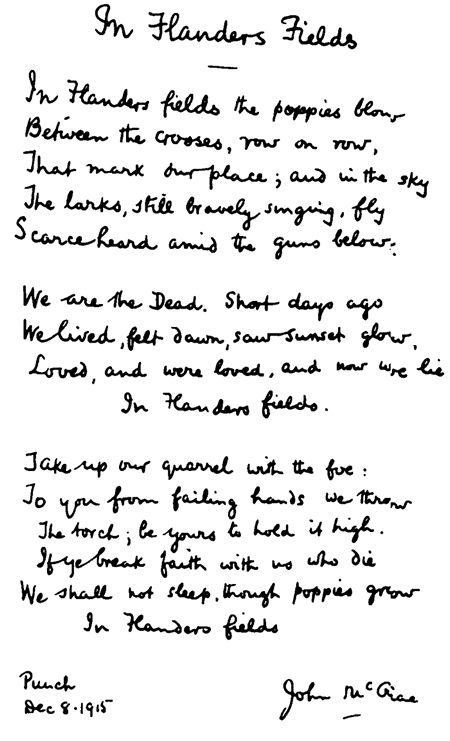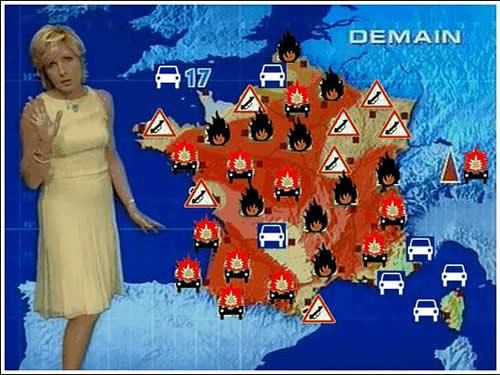It’s November 11th, the anniversary of the singing of the Armistice, marking the end of World War I. It’s commemorated as Remembrance Day in Canada, various Commonwealth countries and in France and Belgium and as Veterans’ Day in the U.S.
Here in Canada, we often read this poem on this day:

In Flanders Fields was written by Lieutenant Colonel John McCrae MD, a field surgeon assigned to the First Field Artillery Brigade. It was written after a particularly bloody battle in Ypres that started on April 22, 1915 and that lasted 17 days. McCrae later wrote about the experience:
I wish I could embody on paper some of the varied sensations of that seventeen days…Seventeen days of Hades! At the end of the first day if anyone had told us we had to spend seventeen days there, we would have folded our hands and said it could not have been done.
In early May 1915, after performing a funeral for Alexis Helmer, who was both a student and friend (there was no chaplain available), McCrae sat in the back of an ambulance, from which wild poppies could be seen growing in a nearby cemetery.
(Poppies thrive in disturbed and upturned soil. The vastly improved artillery of the era and the introduction of trench warfare provided plenty.)
He wrote the following into his notebook:
In Flanders Fields the poppies blow,
Between the crosses row on row,
That mark our place; and in the sky
The larks, still bravely singing, fly
Scarce heard amid the guns below.We are the Dead. Short days ago
We lived, felt dawn, saw sunset glow,
Loved and were loved, and now we lie
In Flanders fields.Take up our quarrel with the foe:
To you from failing hands we throw
The torch; be yours to hold it high.
If ye break faith with us who die
We shall not sleep, though poppies grow
In Flanders fields.
He showed the poem to a Cyril Allinson, a 22 year-old sergeant-major, who was delivering mail at the time. Allinson is quoted as saying:
His face was very tired but calm as we wrote. He looked around from time to time, his eyes straying to Helmer’s grave.
The poem was exactly an exact description of the scene in front of us both. He used the word blow in that line because the poppies actually were being blown that morning by a gentle east wind.
It never occurred to me at that time that it would ever be published. It seemed to me just an exact description of the scene.
McCrae wasn’t satisfied with the poem and tossed it away. Luckily, a fellow officer retrieved it, and it was submitted to two British magazines: The Spectator and Punch (both of which still exist today). The Spectator rejected it, but Punch published it in December 1915.
Update: This commenter informs me that Punch stopped publishing in 2002.








